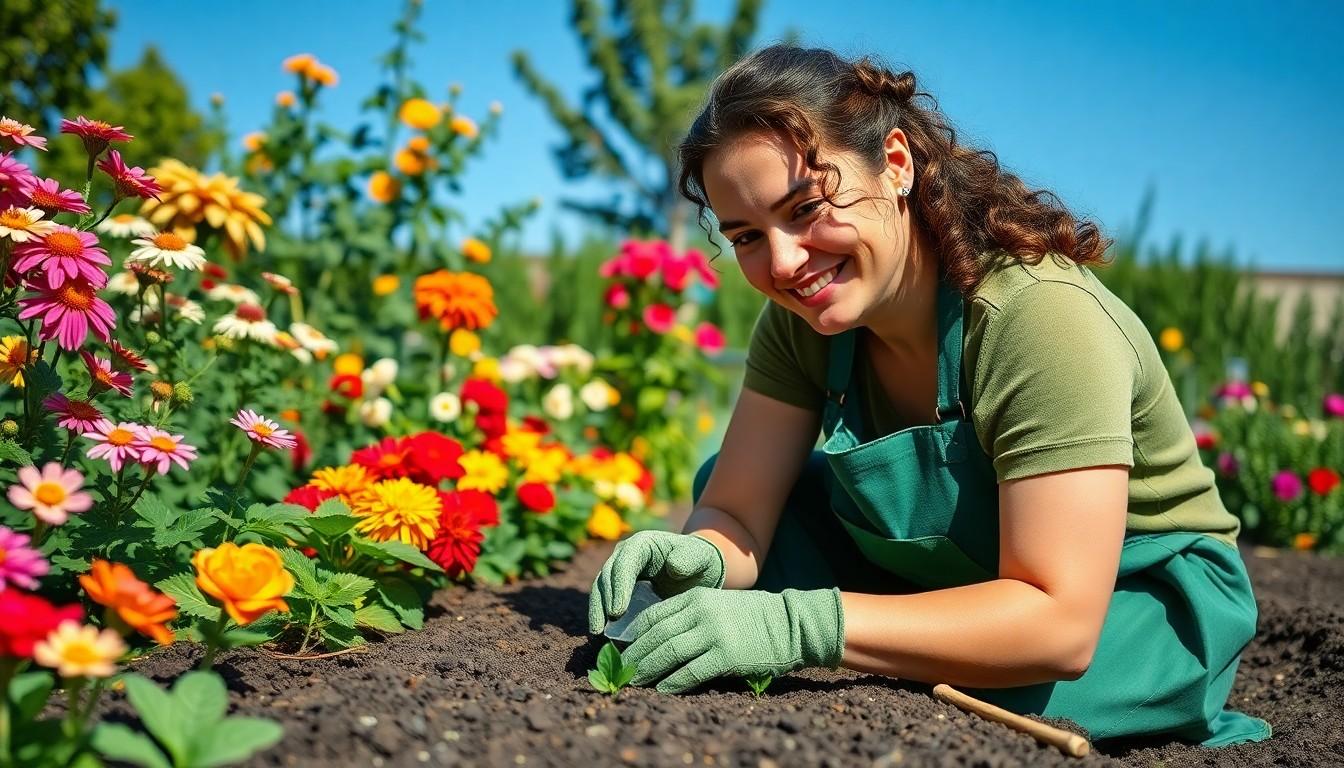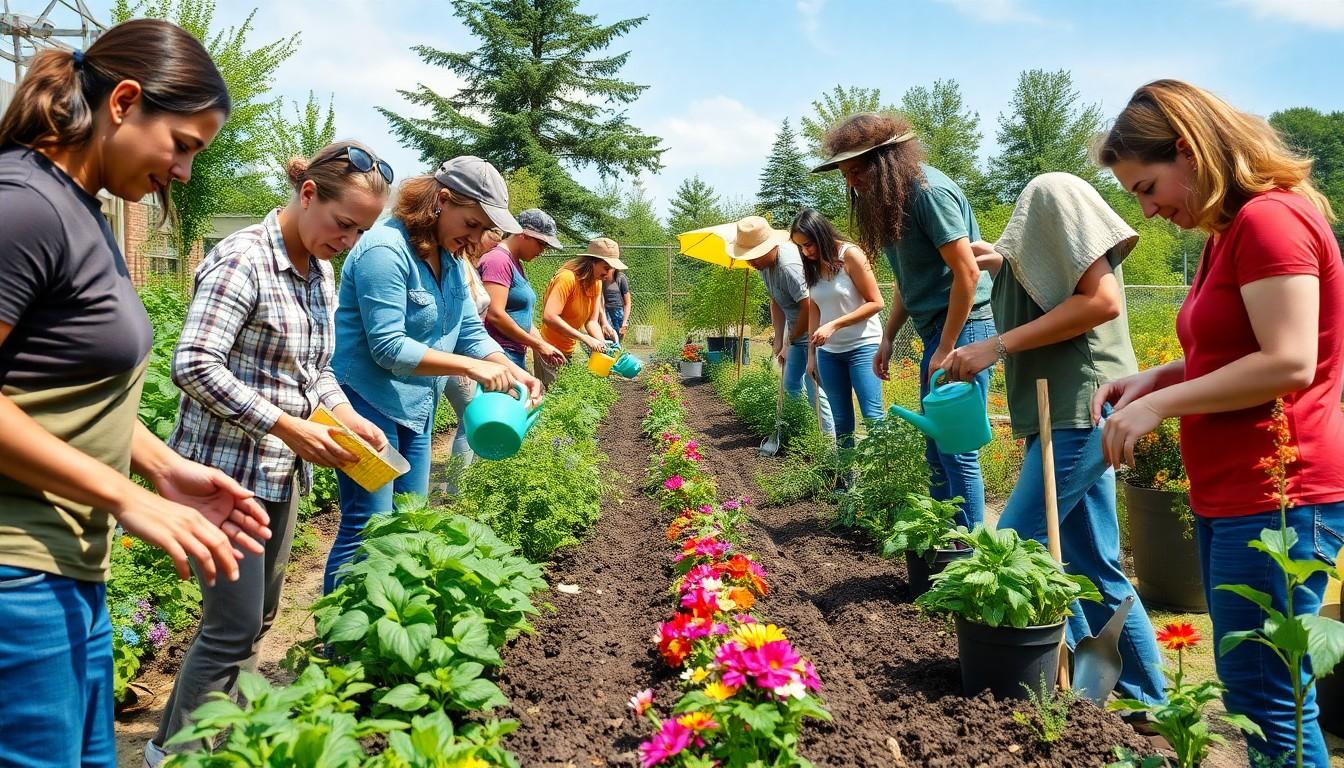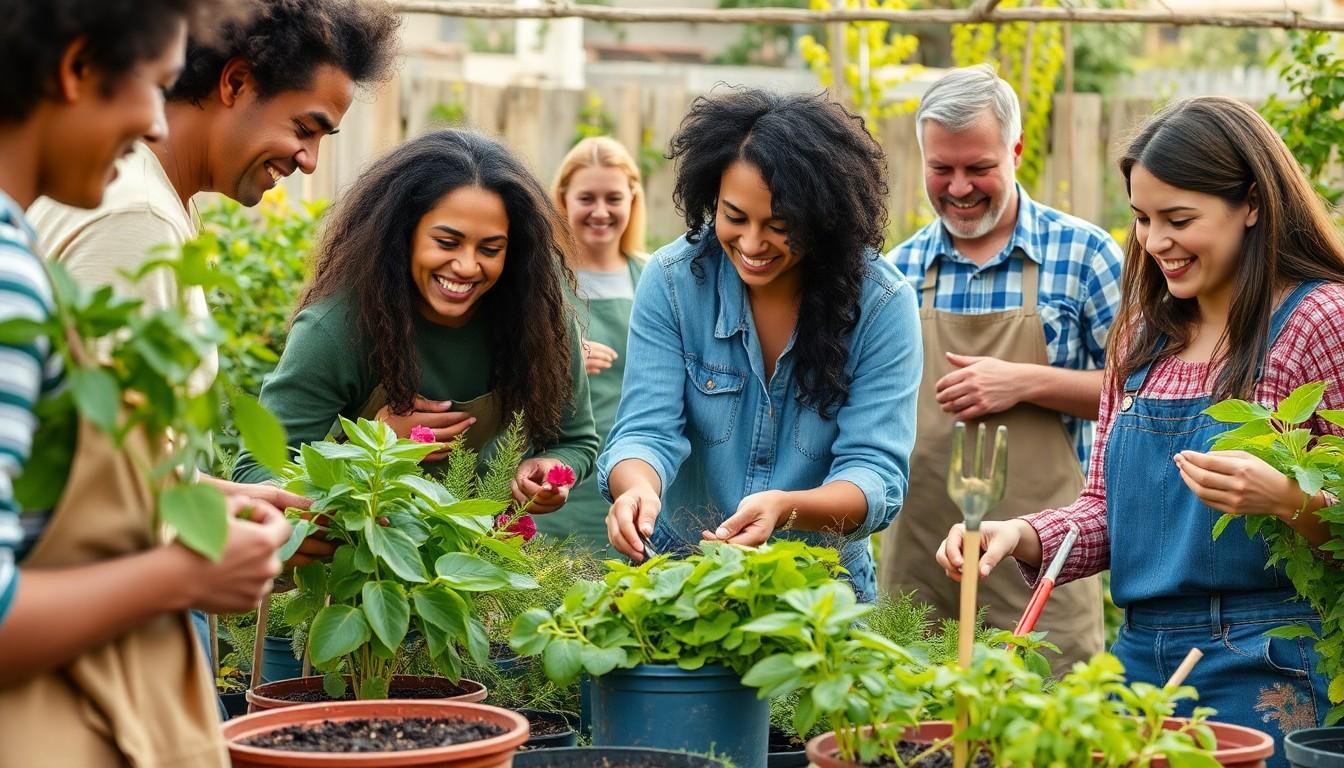Phone:
(701)814-6992
Physical address:
6296 Donnelly Plaza
Ratkeville, Bahamas.

In a world where plastic straws seem to be the biggest environmental villain, sustainable gardening emerges as the superhero we didn’t know we needed. It’s not just about growing tomatoes; it’s about cultivating a greener planet while getting your hands a little dirty. Who knew that saving the Earth could come with such delicious perks?
Sustainable gardening focuses on environmentally friendly practices that promote a thriving ecosystem. It addresses pressing environmental concerns while offering personal rewards.
Sustainability in gardening safeguards natural resources for future generations. It encourages biodiversity, fostering habitats for various species. Sustainable practices help combat climate change by reducing greenhouse gas emissions through minimal energy use and waste. Protecting soil quality ensures productive land, allowing plants to flourish over time. That commitment to sustainability nurtures a healthier environment and promotes responsible stewardship of Earth’s resources.
Sustainable gardening practices yield numerous benefits for individuals and communities. Fresh produce offers better nutrition, enhancing diets with organic fruits and vegetables. Reduced chemical use leads to healthier ecosystems, supporting wildlife and pollinators. Cost savings result from minimized inputs, such as chemical fertilizers and pesticides. Educational opportunities arise as communities engage in sustainable practices, fostering an understanding of ecological balance. Gardening practices create green spaces that enhance local aesthetics, boosting mental well-being and community pride.

Sustainable gardening blogs contain several essential features that enhance their effectiveness and reach. They provide valuable resources for readers interested in eco-friendly practices.
Informative content serves as the backbone of any sustainable gardening blog. Articles should focus on best practices, such as composting techniques, organic pest control, and soil health improvement. They can include guides on how to grow native plants that support local ecosystems. Case studies showcasing successful sustainable gardens offer real-world examples that inspire readers. Clear visuals, such as infographics or videos, can support text-based information. Readers gain practical knowledge and actionable tips that encourage them to adopt sustainable gardening methods.
Community engagement fosters a sense of connection among readers. Blogs can include forums or comment sections where gardeners share experiences and tips. Social media integration allows for further interaction and sharing of gardening achievements. Hosting virtual workshops or local meet-ups promotes collaboration and learning. Contributors might highlight stories from diverse gardeners to create inclusive content. Encouraging readers to submit their gardening stories makes them part of the blog’s narrative. Building a community strengthens commitment to sustainable practices while expanding the blog’s reach.
Several impressive sustainable gardening blogs provide valuable insights and practices for eco-conscious gardeners. These platforms focus on different sustainable gardening aspects, offering diverse information.

This blog showcases methods for maintaining soil health and maximizing produce without chemicals. It features comprehensive articles on organic pest control techniques, crop rotation strategies, and natural fertilization options. Readers learn about the benefits of composting and how to enrich garden soil sustainably. Clear, actionable advice helps participants in organic agriculture reduce their environmental impact while enjoying healthier fruits and vegetables. Success stories from fellow gardeners foster a sense of community and inspire new gardeners to adopt organic practices.
Urban gardening presents unique challenges and opportunities. This blog specializes in innovative solutions for limited spaces. Vertical gardening techniques, container gardening tips, and urban composting strategies populate its content. Advice spans from selecting the right plants for small gardens to maximizing yields within city constraints. Additionally, articles highlight the importance of local food systems and how readers can contribute. Engaging visuals complement the content, showcasing vibrant urban gardens, making it easier for city dwellers to get started.
Permaculture emphasizes designing gardens that mimic natural ecosystems. This blog delves into permaculture fundamentals, offering guidance on creating self-sustaining garden systems. Techniques such as companion planting and water conservation practices form core topics. Through informative resources, readers discover how to integrate diverse plants and animals into their gardening setups. Articles also highlight community engagement, promoting local workshops and permaculture events. The supportive environment encourages collaboration and sharing, enriching the overall gardening experience.
Implementing sustainable gardening practices enhances both the environment and personal well-being. Here are effective strategies to foster an eco-friendly gardening experience.
Composting serves as a powerful method for reducing waste and enriching soil. Utilize kitchen scraps, yard waste, and paper products while ensuring a balanced mix of green and brown materials. Monitor moisture levels to maintain the right consistency. Turning the compost pile every few weeks accelerates decomposition, creating nutrient-rich compost within 2-6 months. Apply this compost to gardens, enriching the soil while reducing reliance on chemical fertilizers. Keep a separate bin for vermicomposting, which involves using worms to break down organic material efficiently. These techniques not only promote recycling but also enhance biodiversity.
Water conservation proves crucial in sustainable gardening practices. Installing rain barrels captures rainwater for irrigation, providing a cost-effective solution. Mulching around plants reduces soil evaporation, maintaining moisture levels in gardens. Drip irrigation systems deliver water directly to plant roots, minimizing waste. Observing the weather forecasts aids in adjusting watering schedules, ensuring plants receive adequate hydration without excess. Drought-resistant plants thrive in arid conditions, requiring less water and maintenance. Consider scheduling watering during early mornings or late evenings to reduce evaporation. These strategies enhance resource efficiency, supporting healthier gardens.